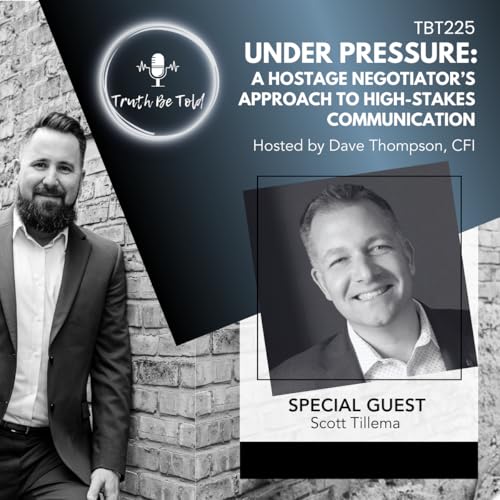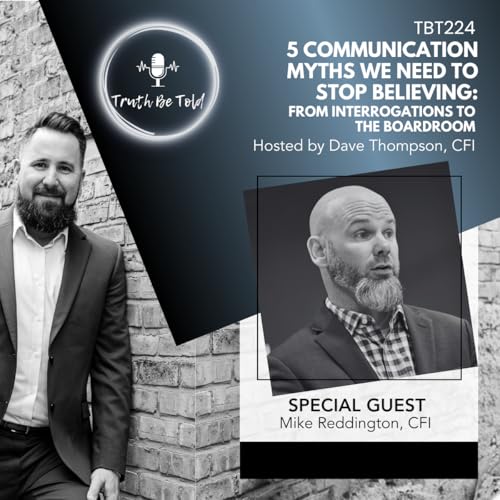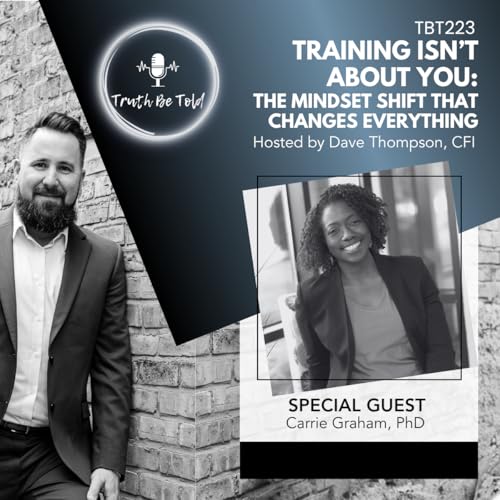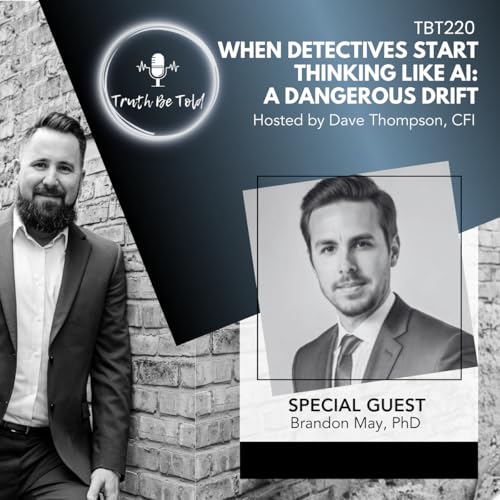In this episode of Truth Be Told, Dave Thompson sits down with Dr. Brandon May, a cognitive psychologist and forensic researcher, to explore the intersection of investigative interviewing, memory, and artificial intelligence. From alcohol’s surprising effects on memory recall to the risks of AI contaminating witness testimony, Dr. May brings research and real-world insights that every investigator, practitioner, and curious listener should hear. Together, they discuss the promise—and the perils—of AI in law enforcement, training, and beyond.
Whether you’re an investigator, an academic, or just fascinated by how technology is reshaping justice, this conversation sheds light on where we are, where we’re going, and what we must watch out for along the way.
Follow us on LinkedIn and Instagram!
👉 Be sure to check the show notes for links to Dr. May’s recent paper, connect with him on LinkedIn, and explore the resources mentioned in this episode.
May, Brandon | Florida Tech
Truths:
· Memory and Alcohol: Research shows alcohol reduces the quantity of recalled information, but not its accuracy—meaning intoxicated witnesses can still provide reliable accounts.
· AI as a Double-Edged Sword: While AI can support investigators with tasks like summarization and hypothesis generation, overreliance risks “drifting”—where detectives begin to think like AI rather than applying critical judgment.
· The Risk of Contamination: Just as leading questions can distort memory, AI tools may unintentionally reinforce false memories or fabricate details, creating dangerous implications for trials.
· Training Potential: AI-powered avatars and simulations could be powerful tools for investigator training, helping practice questioning techniques and rapport-building in safe environments—though they must supplement, not replace, human-led training.
· Guardrails Are Essential: AI should be viewed as a tool—not a replacement for human empathy, judgment, and rapport. Law enforcement agencies must critically evaluate before adopting it in sensitive investigative contexts.
· Future Caution: Without careful implementation, we could see wrongful convictions not because of eyewitness errors, but due to “AI witness testimony.”
 55 mins
55 mins Dec 27 202559 mins
Dec 27 202559 mins Dec 10 20251 hr and 2 mins
Dec 10 20251 hr and 2 mins 1 hr and 3 mins
1 hr and 3 mins Nov 12 20251 hr
Nov 12 20251 hr Oct 29 20251 hr and 20 mins
Oct 29 20251 hr and 20 mins 1 hr
1 hr 1 hr
1 hr
